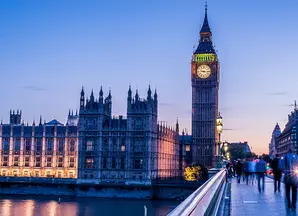Zusammenfassung
Britain’s Labour Party returned to power for the first time in 14 years after winning a large majority in parliamentary elections.
Key Points
- Britain’s Labour Party won a large majority in parliamentary elections held on July 4 and will return to power for the first time in 14 years. The Conservative Party suffered its worst-ever performance.
- Labour faces considerable economic challenges and has limited fiscal room to lift investment, productivity and growth, especially given its campaign commitment to fiscal prudence.
- Foreign policy, notably improving European Union relations, may be deployed to tackle economic challenges and to enhance the UK’s global reputation and influence.
- The Labour Party’s win takes British government bonds a step closer to becoming a safe haven with the UK scoring well on inflation and fiscal dynamics, as well as on political risk.
- We view the results as broadly neutral for UK equities given Labour’s policies are unlikely to diverge massively from those implemented by the previous government. While large multinationals, which dominate the UK equity market, will be less sensitive to the election result, domestic-focused companies in sectors such as energy and housebuilding may be more affected.
- Global factors and the Bank of England’s policy choices will be the main drivers of sterling, which may strengthen gradually over the course of the second half of the year.
Read More

